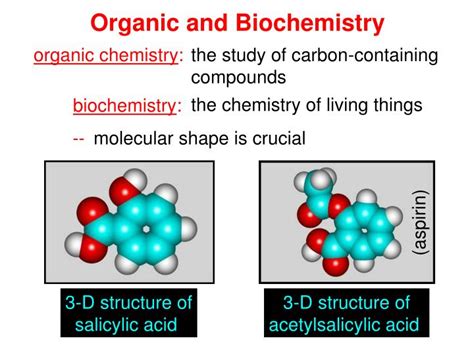Organic chemistry and biochemistry are demanding disciplines within chemistry, each presenting its own complexities. However, the perception of whether one is harder than the other varies widely among students and experts. Let’s delve into factors influencing this debate and uncover the nuances that set these two subjects apart.

Dissecting the Differences: Ochem vs. Biochem
Complexity of Concepts
Ochem grapples with the structure, properties, and reactivity of organic molecules. Understanding electron configurations, hybridization, and molecular orbitals is essential for navigating this domain. The sheer number of functional groups and their intricate reactions can be daunting, particularly for those lacking a strong chemistry foundation.
Biochemistry, on the other hand, explores the intricate world of biological macromolecules, including proteins, carbohydrates, nucleic acids, and lipids. These molecules exhibit complex structures and interactions, and understanding them requires knowledge of organic chemistry, cell biology, and molecular biology. The challenge lies in grasping their biological functions, metabolic pathways, and the regulation of these processes.
Memorization Load
Ochem demands extensive memorization of reaction mechanisms, functional group transformations, and chemical names. Students must master a vast nomenclature system and recall numerous reagents and reaction conditions. The sheer volume of information can overwhelm some learners, especially those struggling with rote memorization.
Biochemistry also requires memorization, but its scope is broader. In addition to molecular structures and reactions, students must delve into biological processes, enzyme function, and metabolic pathways. The biological context introduces an additional layer of complexity, as students must understand the interconnectedness of different molecules and pathways within living systems.
Application and Relevance
Ochem serves as a foundation for various fields, including medicine, pharmaceuticals, and materials science. Its principles are applied in drug design, polymer synthesis, and the development of new materials. The practical applications of ochem can motivate some students, making it more engaging.
Biochemistry has a direct impact on fields such as medicine, genetics, and biotechnology. Understanding the biochemical basis of diseases, developing new therapies, and manipulating genetic material relies heavily on biochemical knowledge. The potential to make a tangible difference in human health and advance scientific frontiers can be a powerful motivator for students.
Factors Influencing Perception of Difficulty
Background and Preparation
Students with a strong foundation in general chemistry and ochem will generally find biochemistry more manageable. Those with a weaker background in these areas may struggle more. Additionally, students with a keen interest in biology and the life sciences may find biochemistry inherently more appealing and accessible.
Learning Styles and Preferences
Students with a preference for deductive reasoning and problem-solving may find ochem more enjoyable. Those who prefer inductive reasoning and understanding the biological context may find biochemistry more engaging. Learning styles and personal preferences play a significant role in shaping perceived difficulty.
Instructor Quality and Teaching Methods
The quality of instruction and the teaching methods employed can drastically influence the perceived difficulty of both ochem and biochemistry. Clear explanations, engaging lectures, and supportive learning environments can make these subjects more approachable. In contrast, poor instruction and ineffective teaching methods can exacerbate the challenges.
Conclusion
The question of whether biochemistry is harder than organic chemistry has no definitive answer. Both subjects present unique complexities and challenges. The perceived difficulty depends on a multitude of factors, including background knowledge, individual preferences, and the quality of instruction. Ultimately, the most important consideration is finding the subject that aligns with your interests and motivations. Embrace the challenges, seek support when needed, and discover the fascinating world that both ochem and biochemistry have to offer.
Tables
| Characteristic | Organic Chemistry (Ochem) | Biochemistry |
|---|---|---|
| Focus | Structure and reactivity of organic molecules | Biological macromolecules and their functions |
| Complexity of Concepts | High, requires strong organic chemistry foundation | High, requires understanding of biology and cell biology |
| Memorization Load | Extensive, includes reactions, functional groups, and nomenclature | Comprehensive, includes molecular structures, biological processes, and pathways |
| Application and Relevance | Medicine, pharmaceuticals, materials science | Medicine, genetics, biotechnology |
| Factor | Influence on Perceived Difficulty |
|---|---|
| Background and Preparation | Strong background in general chemistry and ochem makes biochemistry easier |
| Learning Styles and Preferences | Deductive reasoning suits ochem, inductive reasoning suits biochemistry |
| Instructor Quality and Teaching Methods | Clear explanations and engaging lectures make subjects more approachable |
FAQs
1. Is it possible to excel in biochemistry without a strong background in ochem?
It is possible but challenging. A solid understanding of ochem provides a foundation for understanding biochemical reactions and pathways.
2. Which subject is more important for a career in medicine?
Both ochem and biochemistry are essential for understanding the biochemical basis of diseases and developing new therapies.
3. Is it easier to get a good grade in ochem or biochemistry?
Grading practices vary depending on the institution and instructor. However, both subjects present their own challenges and require consistent effort and understanding.
4. Which subject is more relevant to everyday life?
Biochemistry has a direct impact on our understanding of health, nutrition, and the environment. It also plays a crucial role in advances in biotechnology and medicine.
5. Is it possible to self-study ochem or biochemistry?
It is possible but requires self-discipline and access to quality learning resources. Seeking support from a tutor or online forums can be beneficial.
6. What are some tips for studying ochem or biochemistry effectively?
- Attend class regularly and take detailed notes.
- Review material frequently and work through practice problems.
- Seek help from classmates, tutors, or professors when needed.
- Use visual aids, diagrams, and flashcards to aid understanding.
- Break down complex concepts into smaller, manageable chunks.
- Focus on understanding the underlying principles rather than rote memorization.
